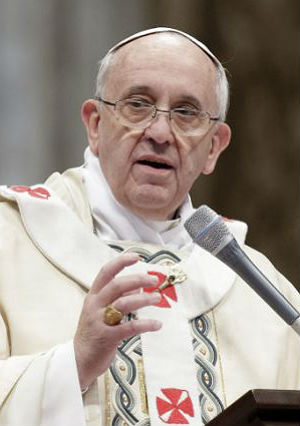Is Pope Francis Evil? This question, though provocative, stems from a variety of controversies and misunderstandings that have surrounded his papacy. As the leader of the Catholic Church, Pope Francis has often found himself at the center of debates regarding his progressive stances on social issues, his approach to reform within the Church, and his outspoken criticism of political figures. Understanding these controversies requires delving into the complexities of his leadership and the diverse reactions it has elicited globally.
Unpacking the controversies surrounding Pope Francis involves examining both his actions and words. From his calls for mercy and compassion towards marginalized groups to his strong stance against corruption, the Pope has consistently challenged traditional norms within the Church. However, this has not come without backlash, as some critics label him as too liberal or even evil. Yet, others see him as a beacon of hope and change in an ever-evolving world. This article explores the various perspectives and sheds light on the misunderstandings that have arisen during his tenure.
Pope Francis Criticizes Anti-Life Policies Amidst Political Turmoil
Pope Francis has been vocal about his disapproval of what he perceives as anti-life policies, particularly those concerning abortion and migration. In a recent address, he urged American Catholics to carefully consider their choices in the upcoming U.S. election. The Pope emphasized the importance of selecting leaders whose policies align with the values of life and human dignity, urging voters to discern which candidate represents the lesser evil in this context.
While he did not explicitly name the candidates, his message was clear. He criticized policies that restrict immigration and promote abortion, suggesting that such measures are contrary to the teachings of the Church. By framing the choice as one between two undesirable options, the Pope encouraged Catholics to engage in thoughtful reflection when casting their ballots. His remarks reflect a broader call for moral responsibility in political decision-making.
This stance has sparked debate among Catholics and non-Catholics alike. Some appreciate the Pope's emphasis on ethical considerations in voting, while others feel he is overstepping by involving himself in political matters. Regardless, his comments underscore the significance of faith-based values in shaping public policy.
Political Reactions and Misinterpretations of Papal Statements
In response to Pope Francis's statements, some political figures and commentators have expressed strong opinions. For instance, U.S. Rep. Marjorie Taylor Greene made headlines when she tweeted about the hand of God defeating evil following the Pope's death. Her comments were met with confusion and criticism, as they seemed to contradict the Pope's legacy of promoting peace and understanding. Such reactions highlight the polarizing nature of his leadership and the varying interpretations of his messages.
Greene's remarks also drew attention to the ongoing tension between religious leaders and political figures. While some view the Pope as a symbol of progressive ideals, others see him as a threat to traditional values. This divide underscores the challenges faced by religious leaders in navigating the complex landscape of modern politics. The Pope's efforts to bridge gaps and foster dialogue often lead to misinterpretations and misunderstandings.
Despite these challenges, Pope Francis continues to advocate for unity and compassion. His willingness to engage with controversial topics and challenge established norms reflects his commitment to addressing the needs of a rapidly changing world. By encouraging open dialogue and mutual respect, he seeks to inspire positive change across societies.
A Legacy of Reform and Renewal Within the Church
Pope Francis's papacy is marked by a series of ambitious reforms aimed at revitalizing the Catholic Church. One of his key priorities has been tackling corruption, which he describes as an ancient evil and the devil's dung. In his efforts to clean up the Vatican administration, the Pope has faced significant resistance from entrenched interests within the Church hierarchy. Nevertheless, he remains steadfast in his mission to promote transparency and accountability.
His focus on corruption extends beyond financial misconduct to include systemic issues that hinder the Church's ability to serve its faithful effectively. By addressing these problems head-on, Pope Francis hopes to restore trust and credibility among believers. His bold approach has earned him both admiration and criticism, as some perceive his reforms as too radical, while others celebrate them as long overdue.
Ultimately, Pope Francis's legacy will be defined by his unwavering commitment to justice and equality. Through his actions and words, he strives to create a more inclusive and compassionate Church that resonates with people from all walks of life. As he navigates the complexities of his role, his vision for renewal continues to inspire hope and transformation worldwide.

